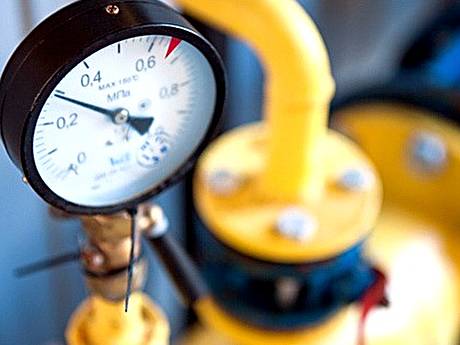
A gradual increase in prices of energy resources for households, which will continue in the future, has considerably affected Ukrainian citizens' paying capacity and consumer demand. The situation is so serious that measures to address it need to be taken immediately, according to President of the Ukrainian League of Industrialists and Entrepreneurs and head of the Anti-Crisis Council of NGOs Anatoliy Kinakh.
"The population in Ukraine is getting poorer. A large share of the Ukrainian population lives below or on the poverty line (80% of Ukraine's population, according to UN standards). A constant increase in housing and utilities rates creates problems with payment of bills, including utilities ones. In particular, households' debts for housing and utilities as of the end of May 2015 exceeded UAH 12.54 billion with debts growing by UAH 133.75 million in the past five months. And this debt as a growing trend will continue," Kinakh said.
Therefore, he said that the anti-crisis program for joint action by the Ukrainian authorities and businesses has a special section entitled "Modern Tariff Policy." It includes first and foremost the demand that economic justification of a considerable increase in tariffs should be examined. It also suggests creating a mechanism to support Ukrainian households' solvency. "It's ridiculous that foreign auditors have been involved [to check increased tariffs] after a first round of an increase in the tariffs and consequent negative reaction from the households, as if Ukraine hasn't got own skilled professionals. If the tariffs had been increased groundlessly, they should have immediately adjusted to reality, while a further increase in housing, utilities and energy services should be preceded by measures aimed at the stabilization of energy policy in the country," Kinakh stressed.
In his words, national energy companies need to be considerably upgraded, and such upgrading projects should be implemented by domestic machine-building enterprises. Preparation for the winter must be much more active – natural gas should be pumped into underground storage facilities, while coal and boiler oil stocks should be accumulated.
The wholesale electricity market needs to be modernized, while resolute measures need to be taken to stabilize NJSC Naftogaz Ukraine's work and bring it to profitable operation and reduce maintenance costs of Ukraine's gas transport system and gas transportation costs. What is more, regulatory procedures of production, transportation and storage of Ukrainian energy resources should be streamlined.
"The industrial community has repeatedly stressed that the state needs to develop a modern, well-considered effective energy policy, which would completely match its revamped industrial policy. And it is a systematic approach, the restoration of the relevant branches of economy and the creation of new jobs rather than 'putting out fire' and continuously raising tariffs will help resolve all energy and utilities problems that painfully affect both the industry and households," Kinakh stressed.
Kinakh spoke in favor of transparent targeted social aid for low-income population, however, he warned that this should not become a major tool in handling the issue of the population's solvency. The share of subsidies in the national budget's outlays has been growing, and the total sum of subsidies paid in the five months of 2015 was UAH 235.1 million, which was six times, or UAH 196.4 million, more than in the same period of 2014.
"Subsidies may be increased only if the budget is strong and backed up by sustainably working economy. Thus, efficient anti-crisis measures, the stabilization of economy with further sustainable growth, and the implementation of energy and industrial policy accompanied by strict discipline are the only keys to handling growing tariffs, price hikes, households' decreasing solvency and poverty," Kinakh added.
In his words, all proposals on streamlining the tariff policy were handed over to this country's leaders.